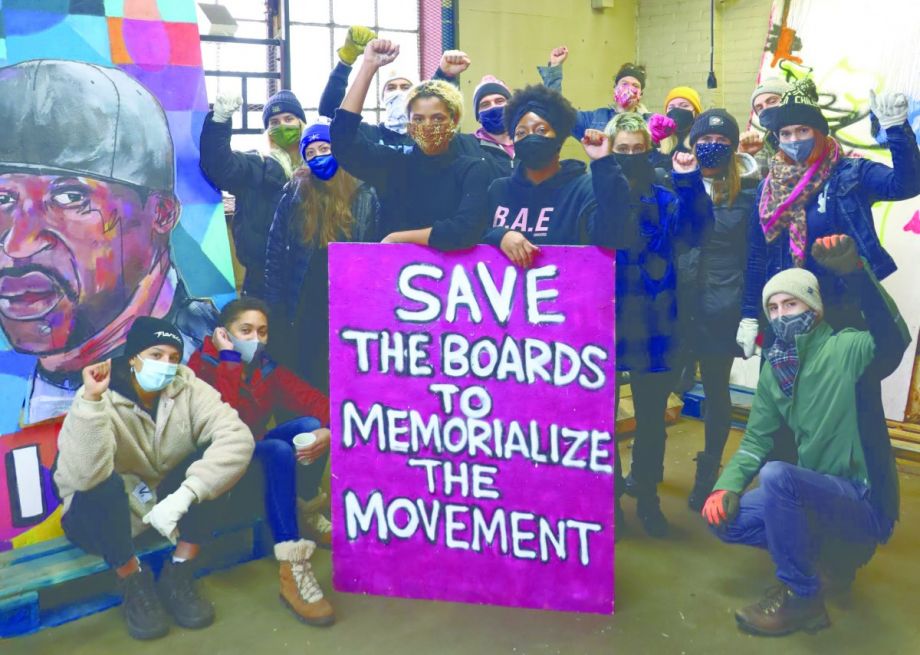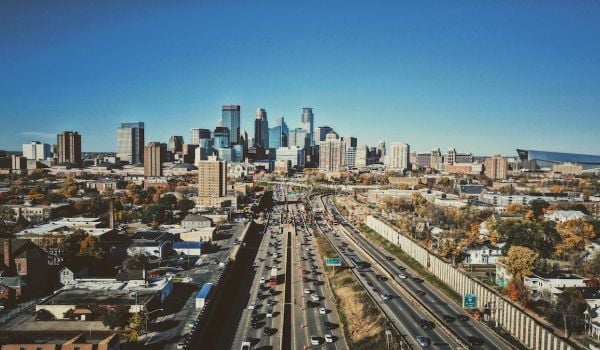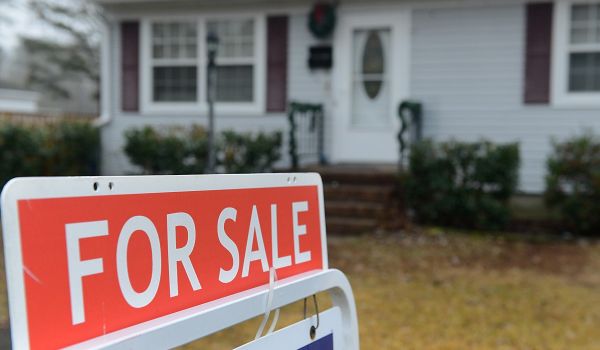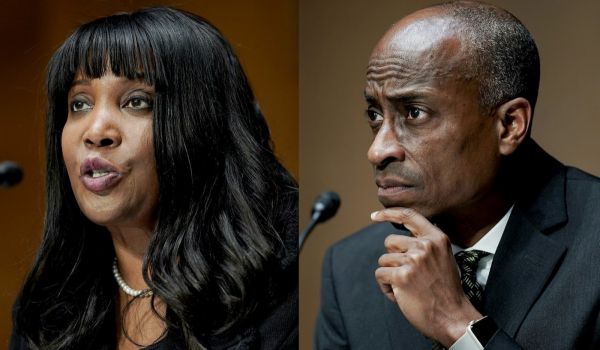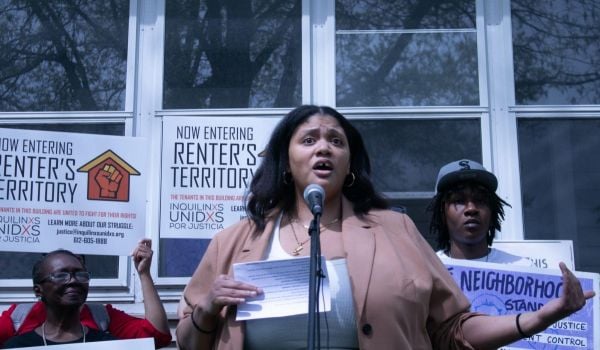Our “Solutions of the Year” have included some of the best community-driven projects across the country. Next City has decided to revisit the following proposals to note the good and the bad in the year(s) following their implementation.
Street Art Saved — But for How Long?
The murder of George Floyd brought an onset of trauma, pain, and grief to cities around the world. Through the process of mourning his loss, Minneapolis residents turned to street art as a form of healing, with hundreds of plywood murals appearing across storefronts in the community. Hoping to salvage these pieces, two women — Leesa Kelly and Kenda Zellner-Smith — collaborated with the Minnesota African American Heritage Museum (MAAHMG) to collect and preserve these murals.
Next City previously reported on this project in its early stages, as the duo was hoping to raise funds to continue their efforts. Nearly a year later, the Save the Boards movement was able to collect and store over 800 plywood boards in a climate controlled space, where they work with experts and volunteers to “organize, catalog, protect the art, and dream up creative solutions to keep it in service to the community” according to their website.
On May 22, 2021, this team hosted a 1-year memorial in Phelps Field Park, near George Floyd Memorial Square, where the art was put on display as speakers, performers, and artists gathered to commemorate the past year. A virtual exhibition is also available on their site as the founders hope to continue to make art accessible to the community.
Save the Boards Minneapolis is currently taking donations to help build a public art display of the boards that residents can easily access. Funding will also help them continue planning events, provide supplies necessary to preserve the paint, and help them keep the boards in a safe place.
‘Right to Repair’ Moves Forward Through New Biden Executive Order
In the modern age of technology, manufacturers have profited off of making consumers dependent on their repair services for years. Offering limited access to the tools and information necessary to fix their products, companies have made it easier in most cases to toss the old tech and buy new, making small repair shops obsolete at the same time.
Then, came the birth of the ‘Right to Repair’ movement. Spearheaded by the Repair Association, activists are fighting against anti-competitive practices that stop consumers from fixing their devices at mom-and-pop repair shops in their community. Next City previously reported on this campaign in 2019, when legislators from New York were scheduled to vote on a ‘right to repair’ bill.
Two years later, Bloomberg reports that 32 states have considered similar propositions. Massachusetts passed an automotive ‘right to repair’ law in 2013, which allowed small repair shops access to vehicle’s information so that it could diagnose problems. It expanded on this regulation last year, granting auto shops access to telematics data, which measures a car’s movements, status, and battery voltage among others.
Now, President Joe Biden is also joining the movement through a new executive order. While mostly aimed at stopping monopolies, the order also includes a ‘right to repair’ clause directing the Federal Trade Commission (FTC) to establish “rules on when consumers can bypass manufacturers to seek repairs on products they own,” Politico reports.
Manufacturers have argued that doing so would infringe on their privacy rights and lead customers to obtain substandard repairs. However, the FTC has found their claims to be unfounded.
Virginia Electric School Bus Expansion Halted - For Now?
In the transition to cleaner forms of transportation, Virginia’s public schools have been the subject of a new program that would replace diesel school buses with electric vehicles.
Next City previously reported on this initiative as Dominion Energy — the state’s largest utility company — pledged to help the school district purchase electric buses at the same cost as diesel buses by making up the difference. Dominion’s interest in this proposal stems from vehicle-to-grid technology, which would input extra energy stored in the buses’ batteries back into the grid when the buses are not in use.
The pilot program had an initial goal of providing 50 electric buses, an objective Dominion met in May of this year.
But expanding the program has proved politically challenging. A bill that would have allowed Dominion to purchase 1,250 electric school buses was blocked three times. Different iterations of the bill decreased the number of buses to 1,000 while another would have mandated that 25% of the electric buses go to schools with high rates of low-income students, the Virginia Mercury reports.
Still, these compromises were not enough to convince legislators on both sides of the aisle that Dominion should be in the business of purchasing buses at all. The legislators raised concerns over the estimated additional $12 ratepayers would have to pay on their energy bills annually.
The final compromise was a new law creating an “Electric Vehicle Grant Fund and Program” that would award grants to public schools to offset the cost of acquiring electric school buses, bypassing Dominion entirely. The Energy News Network, however, reports that the program was left unfunded.

Solcyre (Sol) Burga was an Emma Bowen Foundation Fellow with Next City for summer 2021. Burga graduated from Rutgers University with a degree in political science and journalism in May of 2022. As a Newark native and immigrant, she hopes to elevate the voices of underrepresented communities in her work.
.(JavaScript must be enabled to view this email address)

